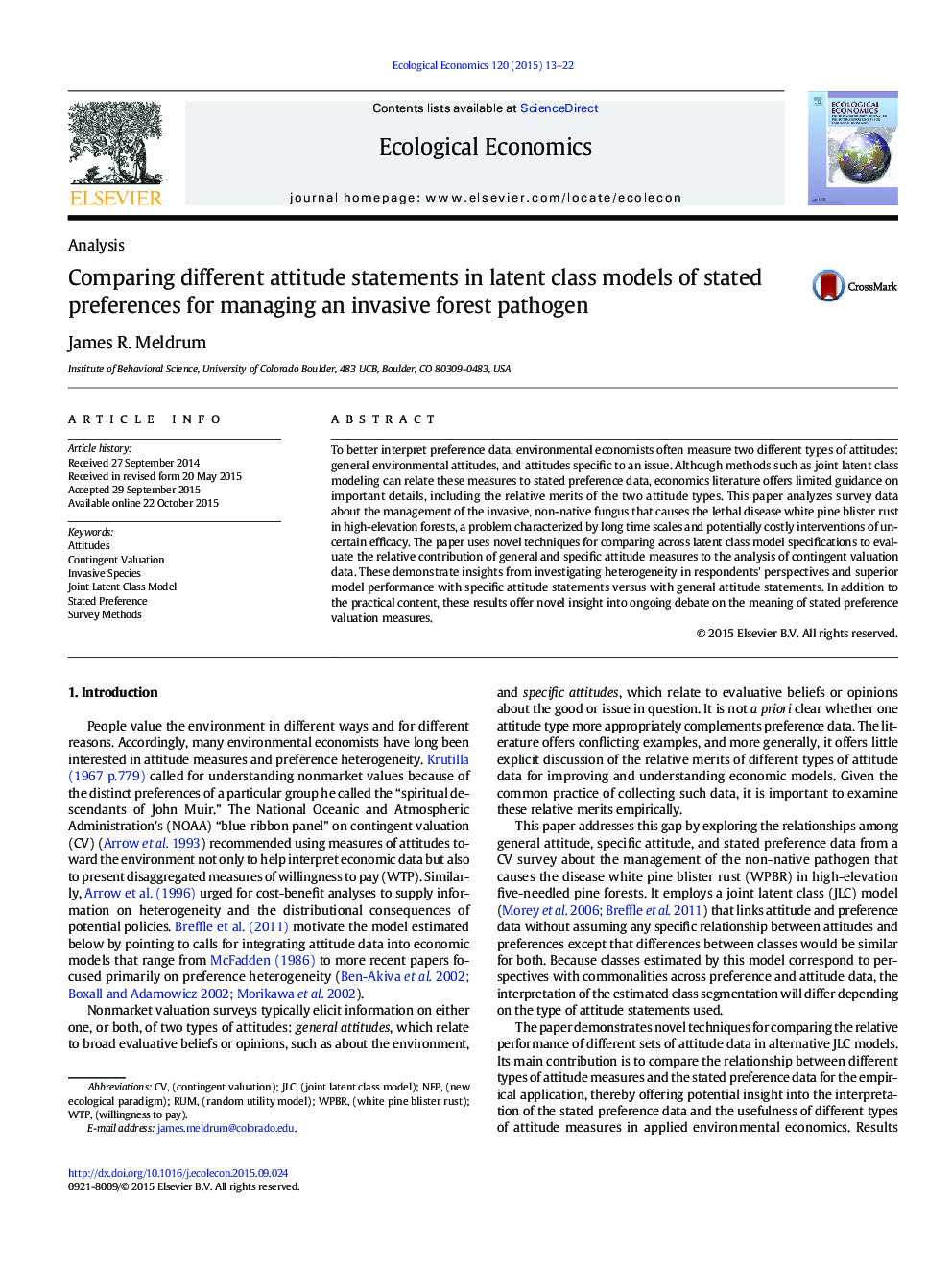| کد مقاله | کد نشریه | سال انتشار | مقاله انگلیسی | نسخه تمام متن |
|---|---|---|---|---|
| 5049183 | 1476359 | 2015 | 10 صفحه PDF | دانلود رایگان |
• Environmental economists often use attitude data to help understand preferences.
• However, literature offers limited guidance on general versus specific attitudes.
• I analyze preferences for managing an invasive fungus, lethal to nontimber forests.
• Novel techniques help compare specifications of latent class model variables.
• Here, models fit better with specific rather than general environmental attitudes.
To better interpret preference data, environmental economists often measure two different types of attitudes: general environmental attitudes, and attitudes specific to an issue. Although methods such as joint latent class modeling can relate these measures to stated preference data, economics literature offers limited guidance on important details, including the relative merits of the two attitude types. This paper analyzes survey data about the management of the invasive, non-native fungus that causes the lethal disease white pine blister rust in high-elevation forests, a problem characterized by long time scales and potentially costly interventions of uncertain efficacy. The paper uses novel techniques for comparing across latent class model specifications to evaluate the relative contribution of general and specific attitude measures to the analysis of contingent valuation data. These demonstrate insights from investigating heterogeneity in respondents' perspectives and superior model performance with specific attitude statements versus with general attitude statements. In addition to the practical content, these results offer novel insight into ongoing debate on the meaning of stated preference valuation measures.
Journal: Ecological Economics - Volume 120, December 2015, Pages 13–22
